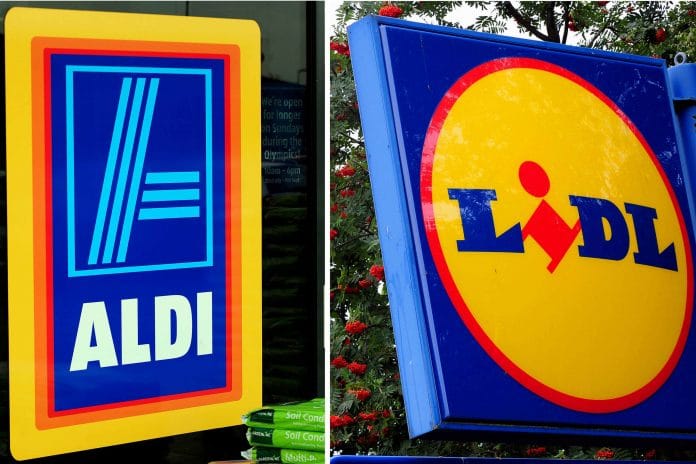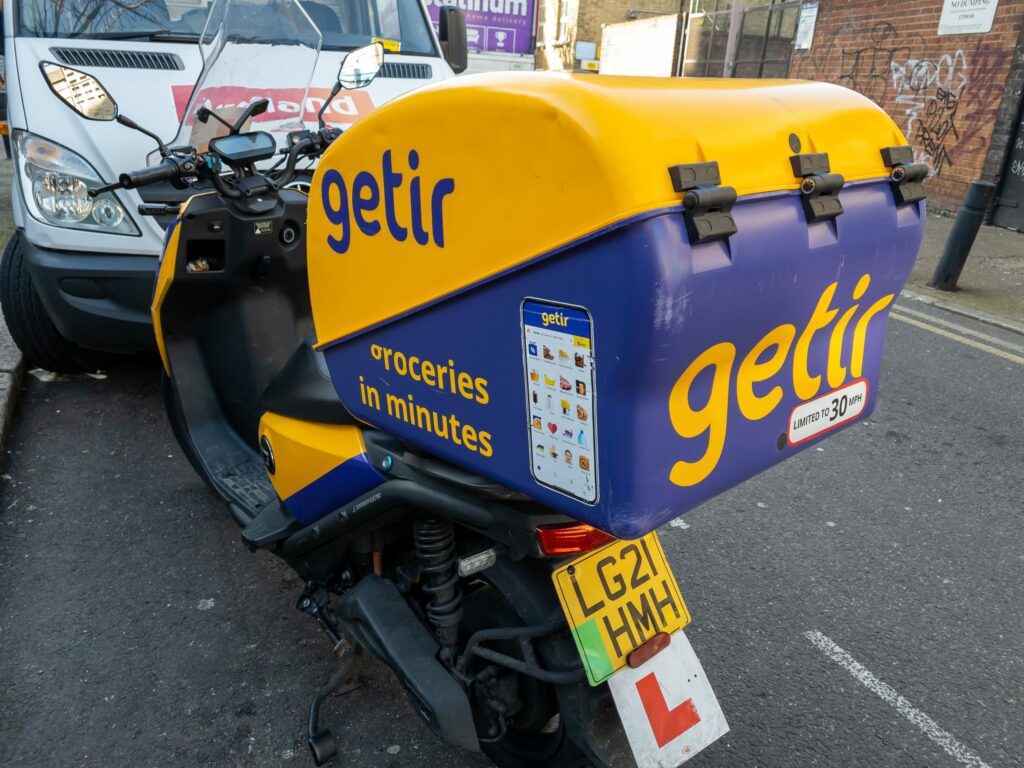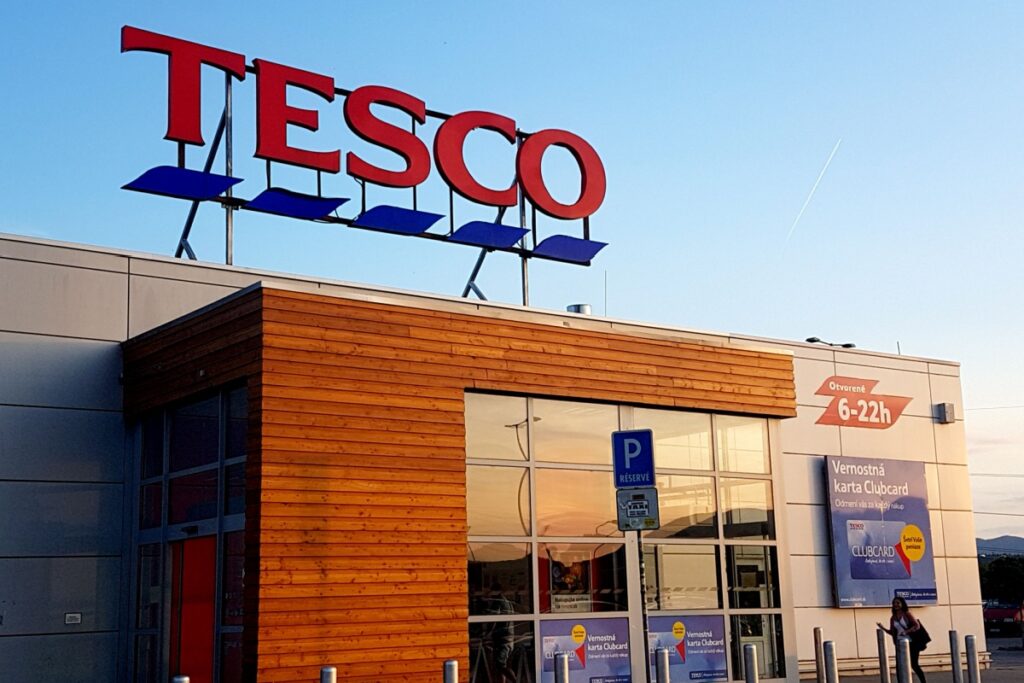It may be common knowledge these days that Aldi and Lidl continue to gain market share and put pressure on the Big 4 grocers, it hasn’t always that way.
Although the German discount grocers both entered the UK market in the 1990s, their chipping away of the market share of Tesco, Sainsbury’s, Asda and Morrisons wasn’t noticed until later. Much more so since the Brexit referendum and subsequent hit to the pound sterling, which prompted consumers to seek cheap alternatives as the cost of living spiked.
As a result, both Aldi and Lidl have been recognised as the UK’s fastest-growing grocers. It wasn’t so long ago that Aldi overtook the Co-op to become the UK’s fifth-largest retailer in terms of market share, while Lidl ovetook Waitrose to the number seven ranking.
According to Kantar Worldpanel’s most recent grocery market share data, the sector returned to growth, with sales rising 0.5 per cent. However, sales at the Big 4 grocers were down.
Meanwhile, Lidl generated the greatest sales rise, with revenues up 9.2 per cent – taking its market share to six per cent.
Aldi and Lidl are both using the current momentum to their advantage, each opening over 700 stores in the UK and 50-70 new branches every year.
In addition, Aldi made clear its goal is to have around 1200 stores by 2025.
Their rapid growth promoted Tesco to launch its own discount fascia called Jack’s in order to try and claw back customers lost to the German grocers. The Big 4 leader hoped to open between 10 to 15 stores in the UK within six months.
However, when Tesco closed the first Jack’s store in Rawtenstall late last month, it raised questions as to whether the popularity and demand for discount grocers has peaked.

University of Stirling retailer professor Steve Burt said the issue was more for Tesco, rather than Aldi and Lidl.
“The closure is perhaps not a major surprise. Tesco’s moves into discount stores raised a few eyebrows at the time,” he told Retail Gazette.
“There was not much of a brand franchise at launch – Aldi and Lidl tend to enter a market with blocks of stores opening with 15-20 at a time to make sure that the logistics and supply chain can leverage some economies but also to maximise the consumer impact of the brand launch.
“Tesco’s approach was very much a toe in the water, format test approach rather than a full launch.”
Tesco said it axed the Jack’s store in Rawtenstall because local customers preferred a regular Tesco store in place instead.
“People like the option of being able to go to discounted stores as well as the big branded stores”
According to Andy Barr, co-founder of online price tracking site Alertr, there will always be “people who are loyal to their favourite brands and don’t like to deal with change”.
“Whilst I am no expert on the town of Rawtenstall, I can hazard a guess that perhaps the area already had a sufficient number of discount stores, and there simply wasn’t a need for the new Jack’s discount store,” he said.
“People like the option of being able to go to discounted stores as well as the big branded stores, at least if they have the Tesco store rather than Jack’s they can buy discounted products as well as their favourite branded goods.
“Variety is the spice of life.”
Barr added that while consumers stick to their trusted brands, they are likely to convert as soon as they realise the amount of money they can save at discount stores.
Big 4 grocers may be moving into new sectors to escape the pressures of discount chain rivalry, but this arguably only leads to new rivals.
For example, when Sainsbury’s acquired Habitat and Argos after owner Home Retail Group agreed to a £1.4 billion takeover in early 2016, it intensified its battle with online giant Amazon.

In 2017, Sainsbury’s pushed on with plans to open 250 Argos outlets within its supermarkets in a bid to take on low-cost rivals and Amazon.
Undoubtedly, one of the reasons why Sainsbury’s bought Argos was for its delivery network, as it looked to deliver goods to customers quicker than Amazon.
Although the Big 4 grocers are big, it can be argued that they’re falling behind in market share as their rate of expansion is minuscule compared to the German discounters.
This is partly because the Big 4 have been putting their focus on fixing existing stores by closing the worst-performing stores, relocating others, refreshing branding and repurposing space.
This is evident as just month, Sainsbury’s revealed plans to close down over a hundred stores and relocate and open even more as part of a five-year plan. This includes closing up to 70 Argos stores as it relocates a further 80 into its supermarkets.
“Consumers are instinctively on a look out for a bargain, so I don’t think discount stores have reached their peak”
Even though it may seem that Big 4 grocers have a bigger advantage when gathering valuable data on consumer’s buying habits, mainly through loyalty programmes, the 2018 Loyalty Study conducted by TCC Global found that Aldi and Lidl have a more loyal customer base than the Big 4 grocers.
Despite the Big 4’s efforts to offer loyalty programmes such as Tesco’s Clubcard and Sainsbury’s Nectar card, Aldi and Lidl have managed to win customers’ loyalty by offering a growing variety of fresh foods, new ranges and alcohol and roll out own-label alternatives.
“Consumers are instinctively on a look out for a bargain, so I don’t think discount stores have reached their peak whatsoever,” Barr told Retail Gazette.
“Discount grocers offer only limited ranges, and in many cases cannot provide the needs of a full basket grocery shop”
“Securing a bargain at a much cheaper price than you’re likely to get elsewhere is always going to give you a rush, regardless of how much money you have.”
However, Stuart Higgins, a partner at tech consultancy BearingPoint, said that as discount grocers offer only limited ranges – and in many cases cannot provide the needs of a full basket grocery shop – “their competitive advantage lies in being in close proximity to existing grocery stores”.
Nevertheless, supermarkets are essential to the economy. With more than 450,000 staff, Tesco is the UK’s biggest private-sector employer and the biggest retailer of any sort in the midst of the growing pressures from the expanding discounters.
However, Barr believes the figures may change as more people are looking to swap to discount grocers as “the future is so uncertain with Brexit and the value of the pound”.
“Everyone is always on the lookout for a discount and if they can get like-for-like products cheaper than they normally would spend then it gives more people incentive to save their money or spend it on other things they need,” he said.
Click here to sign up to Retail Gazette‘s free daily email newsletter

















